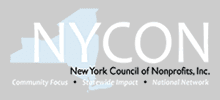Data Are Transforming Philanthropy and the Social Economy
Lucy Bernholz Joins Forces With GrantCraft, Predicts Big Shifts in 2013
New York, NY — January 7, 2013. A GrantCraft publication released today,Philanthropy and the Social Economy: Blueprint 2013, written by leading philanthropy scholar Lucy Bernholz, captures the changing landscape of what it means to use private resources for the public good. No longer the purview of foundations and nonprofits alone, philanthropy is now defined by an array of increasingly diverse activities, such as impact investing, social businesses, peer networks, and crowdfunding. The Blueprint outlines how these and other innovations are transforming the "social economy."
The fourth edition of the Blueprint has joined the suite of materials in GrantCraft — a joint project of the New York-based Foundation Center and Brussels-based European Foundation Centre — which taps the collective knowledge of funders to share insights to help them hone their craft. The analysis and forecasting showcased in the Blueprint provides the GrantCraft community with keen observations about the current landscape, emerging trends, and important breakthroughs likely in the year ahead.
Bernholz notes that the big shifts that matter for donors and "doers" are data-related, and she provides more than a dozen examples of foundations embracing data. Looking into the future, she sees data as transformative for philanthropy, in terms of both practice and policy. Indeed, Bernholz asserts that the use, ownership, and access rules of data will be as definitional for the social economy in the 21st century as the charitable tax deduction was for nonprofits in the 20th century.
"I’m hopeful the Blueprint can contribute to a global discussion about philanthropy, nonprofits, and how we use our private resources for public benefit," said Lucy Bernholz, visiting scholar at Stanford University’s Center on Philanthropy and Civil Society and author of Blueprint 2013. "There are big changes ahead, and theBlueprint gives readers a heads-up on the most meaningful trends."
In this year’s report, Bernholz includes a scorecard for the previous year’s predictions and a list of 2013 forecasts covering crowdfunding, social impact bonds, and political advocacy. She also points out the catchiest philanthropy-related buzzwords of the year and lists possible "wildcard" world events — legislation, scandals, or disasters — that have the potential to mitigate or accelerate the timing of big shifts in the social economy.
"The Blueprint serves as a finger on the pulse of the social economy," said Lisa Philp, vice president for strategic philanthropy at the Foundation Center. "Lucy’s insights about the changing nature of philanthropy have become required reading for funders and anyone concerned with aligning resources toward the greater good."
Throughout 2013, Bernholz will explore the ideas in the Blueprint, as well as trends in Europe and other regions of the world, in an ongoing conversation atField Notes, the GrantCraft blog, as well as on her own blog, Philanthropy2173.
Philanthropy and the Social Economy: Blueprint 2013 can be downloaded for free at www.grantcraft.org.
About the Foundation Center
Established in 1956, the Foundation Center is the leading source of information about philanthropy worldwide. Through data, analysis, and training, it connects people who want to change the world to the resources they need to succeed. The Center maintains the most comprehensive database on U.S. and, increasingly, global grantmakers and their grants — a robust, accessible knowledge bank for the sector. It also operates research, education, and training programs designed to advance knowledge of philanthropy at every level. Thousands of people visit the Center's web site each day and are served in its five regional library/learning centers and its network of more than 470 funding information centers located in public libraries, community foundations, and educational institutions nationwide and around the world. For more information, please visit foundationcenter.org or call .
Established in 1956, the Foundation Center is the leading source of information about philanthropy worldwide. Through data, analysis, and training, it connects people who want to change the world to the resources they need to succeed. The Center maintains the most comprehensive database on U.S. and, increasingly, global grantmakers and their grants — a robust, accessible knowledge bank for the sector. It also operates research, education, and training programs designed to advance knowledge of philanthropy at every level. Thousands of people visit the Center's web site each day and are served in its five regional library/learning centers and its network of more than 470 funding information centers located in public libraries, community foundations, and educational institutions nationwide and around the world. For more information, please visit foundationcenter.org or call .
About the European Foundation Centre
The European Foundation Centre, founded in 1989, is an international membership association representing public-benefit foundations and corporate funders active in philanthropy in Europe, and beyond. The Centre develops and pursues activities in line with its four key objectives: creating an enabling legal and fiscal environment; documenting the foundation landscape; building the capacity of foundation professionals; and promoting collaboration, both among foundations and between foundations and other actors. Emphasising transparency and best practice, all members sign up to and uphold the European Foundation Centre Principles of Good Practice. For more information, please visit www.efc.be.
The European Foundation Centre, founded in 1989, is an international membership association representing public-benefit foundations and corporate funders active in philanthropy in Europe, and beyond. The Centre develops and pursues activities in line with its four key objectives: creating an enabling legal and fiscal environment; documenting the foundation landscape; building the capacity of foundation professionals; and promoting collaboration, both among foundations and between foundations and other actors. Emphasising transparency and best practice, all members sign up to and uphold the European Foundation Centre Principles of Good Practice. For more information, please visit www.efc.be.
We respect your right to e-mail privacy. If you are not interested in receiving periodic messages about Foundation Center events, or have other comments or suggestions, please send e-mail to communications@
For the Full Online Article Click Here














No comments:
Post a Comment